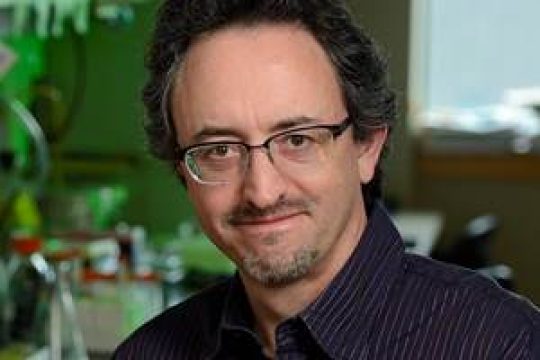Biology: Frizzled receptors in development and disease Our laboratory has focused for the past two decades on a large family of cell-surface receptors called Frizzled. This name refers to the appearance of fruit flies in which the receptor...
The outcome of most parasitic relationships is decided by an elaborate series of events involving hundreds of proteins. Understanding this interaction requires the analysis of the molecular mechanisms operating in both organisms and the causal relationships acting at the...
Our lab is interested in the role that chemosensation plays in regulating physiological processes, particularly in the kidney and the cardiovascular system. We have found that sensory receptors (olfactory receptors, taste receptors, and other G-protein coupled receptors) are expressed...
My laboratory is interested in the molecular mechanisms by which cells interpret signals from their environment that instruct them to proliferate, differentiate, or die by apoptosis. This process is of fundamental importance in the development and function of the...
The current research focus of my laboratory is investigating the olfactory system of Anopheles mosquitoes. We have developed new strains of Anopheles mosquitoes, utilizing the Q-system we originally developed for use in Drosophila, to explore how living Anopheles mosquitoes...
Molecular Biology and Physiology of Ion Transport Chloride is the most abundant free negatively charged ion in the body. Chloride channels are cell-membrane embedded proteins, allowing the movement of chloride in and out of the cells. Defects in chloride...
Organisms go through cycles of metabolic activity, driven by internal cues (circadian, circannual clocks) and physiologic/behavioral inputs (e.g. feeding/fasting, physical activity/rest). In addition, organisms face environmental challenges (physical, chemical or psychological stressors) that require continual adaptation of the pathways...
My lab is an interdisciplinary group that devises and experimentally tests computational tools to explore cell type identity and its molecular underpinnings. A unifying component of our research is the gene regulatory network (GRN). GRNs are programs encoded in...
We study how epithelial tubular organs – which are essential to life in all multicellular organisms – form and specialize. Using the simple unbranched tubes of the Drosophila salivary gland and the beautifully branched tubular network of the Drosophila...










